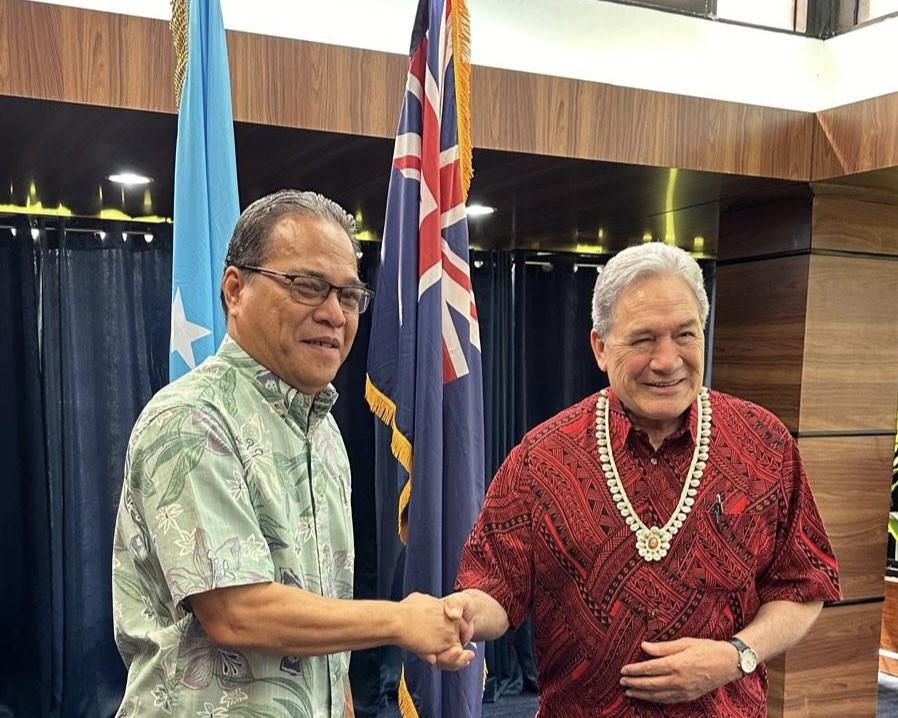The President of the Federated States of Micronesia (FSM) officially held his first ever bilateral meeting with a New Zealand government minister on Tuesday.
The meeting was part of Deputy Prime Minister and Foreign Minister, Winston Peters’, Pacific tour of the Micronesian sub-region ahead of the 53rd Pacific Islands Forum Leaders’ Summit in Tonga later this month.
The FSM is made is up of four island states, separated by vast ocean.
Peters said he hopes the meeting will be the beginning of a closer relationship.
“Maybe because of distance we have not had the same focus as Polynesia or Melanesia, I think that is irrefutable, but we are making up for it now,” he told RNZ Pacific.
“Although they (Micronesia) are a long, long way from us, they are all part of the Blue Continent and we need to keep engaged.”
In recent years, Micronesian leaders have felt excluded in the Pacific’s top political decision-making body, the Pacific Islands Forum.
In February 2021, Micronesian candidate Gerald Zackios was overlooked for the former Cook Islands Prime Minister Henry Puna for the top job at the Forum. It resulted in Micronesian leaders threatening to leave the Forum altogether.
Peters said he spoke to FSM President Wesley Simina about it being important to reach decisions together at the Forum.
“We try and do it collectively, share our views and make a decision altogether,” he said.
“Not just all go off on a different way and then find we can’t move from that position we’ve already taken when a better view emerges from the Pacific Islands Forum.
“They agree that we must work collectively together.”
New Zealand will give NZD$4.4 million (US$2.39 million) towards UNICEF-led projects for improving early childhood development outcomes across the North Pacific.
UNICEF North Pacific field officer, Cromwell Bacareza said the biggest challenge the organisation has is the high costs associated with travelling large distances.
“t’s so huge, [the name] Micronesia can be misleading because micro means small but when you come to think of it, the area we cover in the North Pacific, which includes Palau, the Marshall Islands and the FSM, is even bigger than the continental U.S.”
The FSM, along with the Marshall Islands and Palau have Compact of Free Association agreements with the United States.
Financial support is given to the three nations and in return the U.S is given military access and control.
Bacareza said there is a misguided belief that extra help is not needed because of these agreements.
“There is a misconception that, ‘hey, you have the support of the U.S, you’re taken care of’ but if you look at it, the situation analysis of children there are alarming health indicators.
“Rates of NCD (non-communicable diseases) are still very high, 80 percent of adults are obese, more than 50 percent of children are obese. I think there is still so much we could do.”
He said there are also challenges in delivering education.
Secretary of education Gardenia Aisek said the nation always needed additional support.
She said the nation appreciates the support from New Zealand, Australia, Japan and China for education scholarships.
But Aisek said she felt Micronesia often gets forgotten when it comes to the wider Pacific.
“You always hear about things happening down south” especially in Fiji, but not many in Micronesia.
“But I think with the UN agencies coming more things are happening in North Pacific,” he said.













